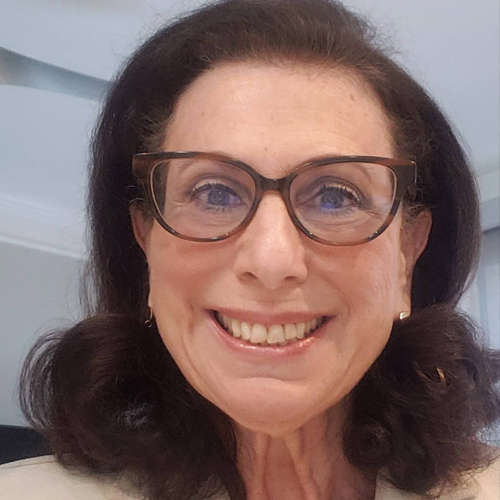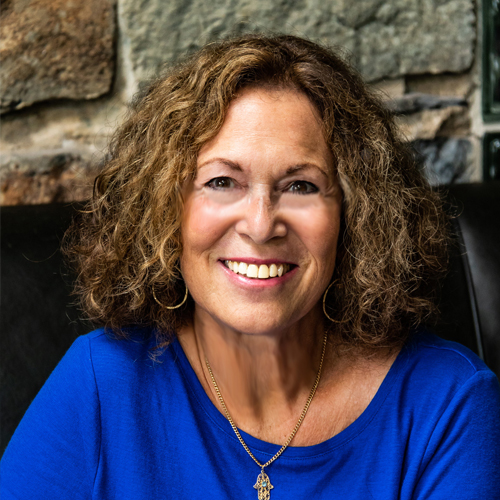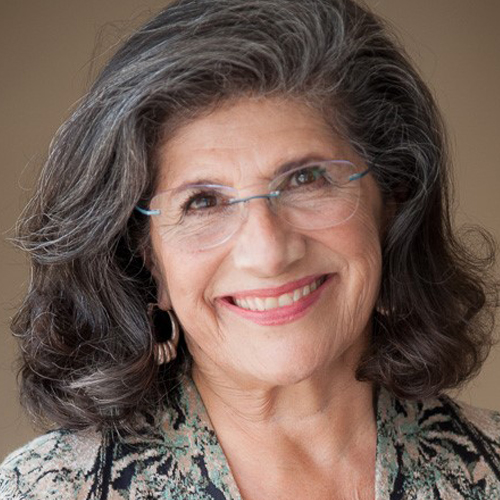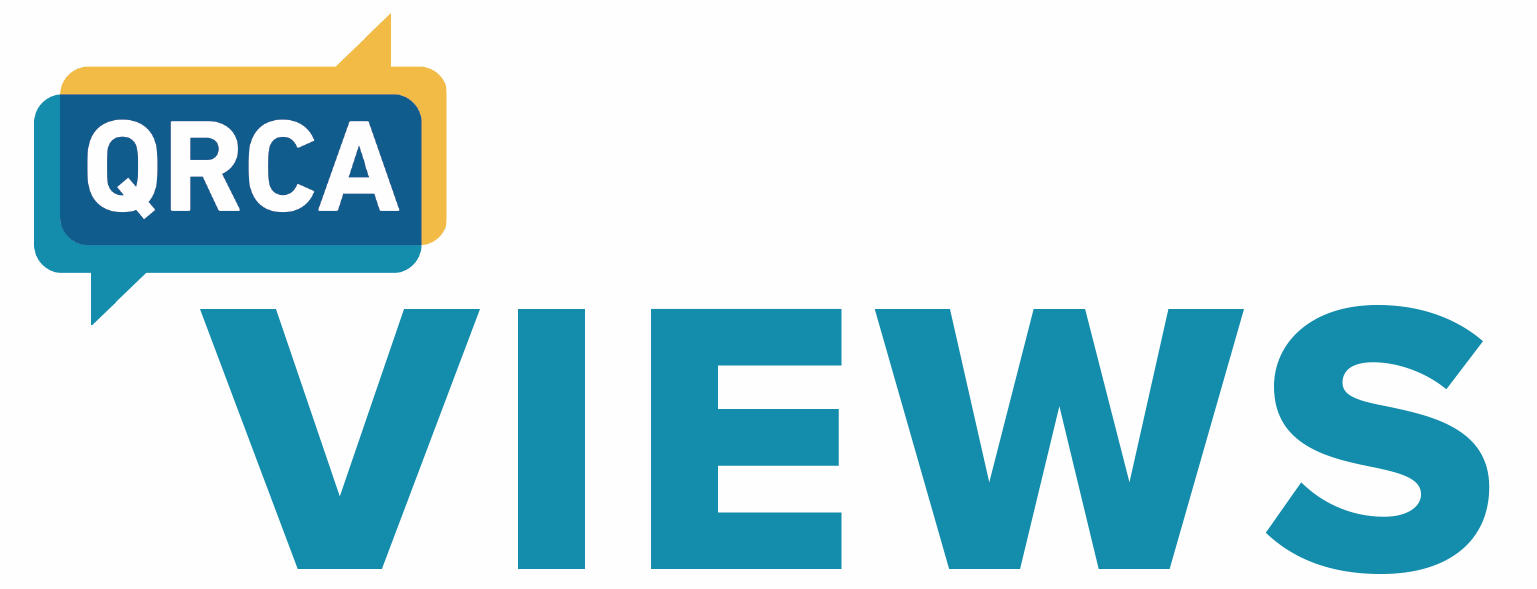Dear Emeritus:
I am relatively new to the field of qualitative marketing research. I am hoping for a long and successful career in the profession. I’m learning while doing, and with all of the changes our industry has adapted, I’m sure I’m making some mistakes along the way. So, I’m turning to you for advice. Would you tell me about some of your lessons learned and successes in your research career?
Thank you,
Newbie in New Mexico
Dear Newbie:
 Betsy Bernstein Responds
Betsy Bernstein Responds
I love that you’ve contacted us emeriti and that we can all give you different perspectives. Just as all of us and our businesses are so different, so are our experiences. Here’s my take:
Know who you are and what you are best at. Especially when you’re starting off, it’s tempting to take any project that comes over the transom. It’s money and experience, perhaps when both are in short supply. Not so fast, though. Do only what you’re best at and the work you want to be known for. With every project, you’re building a track record and reputation. I’m a qually through and through. I knew that, but in the early days I tried to help a client out and “do a little quantitative project.” Mistake! The project was done, but I wasn’t comfortable that it was really the best my client deserved. Our industry is small. Word of mouth travels. Do I think this “little quant project” ever hurt me? No. But would I take that chance again at doing something that’s not really in my wheelhouse and could potentially endanger my reputation? No.
Add value to your clients’ requests. Think about what your client needs, not what they ask for. Understand their objectives before providing a recommended design or solution. An ask for “some focus groups” may not actually be the best solution. Smaller sessions may be better when each participant has a lot to reveal. IDIs may be a better option for communication checks. Building in a presession homework or discovery phase can help respondents be better prepared when they come into a session or to help winnow out respondents whose perspectives might seem less valuable (e.g., product rejectors in a positioning project). In-home interviews or shop-alongs provide context for research observations and make the respondent feedback fresher, as it’s in the moment and not just based on recall. Provide relevant context and push back on client requests where you know there’s a better option, and you’ll be valued as a thought leader.
Have backups. And backups for the backups. It all started with a client suggesting that I be prepared to ask the same question different ways, in case I wind up with blank stares. I then learned that people communicate in different “channels” and may respond better to questions in their channel. Hence, questions such as “How do you feel about this idea?,” “How do you see this idea?,” and “How does this idea sound to you?” can make a big difference in terms of yielding insights.
Being prepared works in everything we do. For in-person/in-facility sessions, make a checklist of what you must have in your facility room, and do a run-through and dress rehearsal with your discussion guide before anyone else arrives. With increasing digital work, I know what I’m good at (moderating and strategizing) and what I’m not (debugging tech issues on the fly). That’s why I never “fly solo” and happily pay for the safety net of live tech help during live webcam sessions. It keeps me and my client observers focused on the research, while someone else takes care of any operational glitches.
Betsy Bernstein
Bernstein Research Group, Inc.
betsy@bernsteinresearchgroup.com
Dear Newbie in New Mexico:
 Lynn Greenberg Responds
Lynn Greenberg Responds
I’m delighted that you are seeking a career in qualitative research, recognizing that it has changed dramatically since I began my journey at an advertising agency in 1979.
My initial teachers were highly skilled qualitative moderators I hired and observed in action, noting their styles and techniques from the back room to identify what might work for me. Only then did I feel prepared to get in front of my first group with the only observer being my immediate boss, Irving Merson, a past QRCA president. He was so impressed that he decided to start moderating as well! After QRCA was founded in 1983, he insisted I join the organization when I left another ad agency to start my own business in 1985. Thus, my number one suggestion is to find opportunities to observe a variety of skilled quallies in action to help you develop your own style and techniques.
Second, as the qualitative industry keeps evolving, you will constantly need to advance your skill sets. Today, you must be an effective “storyteller” with strong digital expertise—technology platforms, video editing, social media presence, social media analytics, and PowerPoint graphics. I learned that trying to excel at digital skills later in life was overly challenging for me, and better left to others.
Third, consider specialization/category expertise and/or collaboration. It’s impossible for one person to be a master of all the different aspects of qualitative. Many QRCs have had highly successful careers as specialists in specific categories or methods: pharma, technology, UX, creativity, and children/teens to name a few. I found partnering with a digitally savvy young professional QRCA-er for online projects worked better for me than doing it myself. It allowed me the ability to focus on content and enjoy the project. In addition, my partner’s insights and tech skills enriched the project learning for the client.
Last, but most importantly, make the most of your QRCA membership by joining committees, chapters, and SIGs, volunteering to work on the annual conference, becoming an editor of QRCA VIEWS, or participating in other QRCA projects. You will greatly expand your universe with new learnings, develop important leadership skills, and make friends for life! I certainly gained this throughout my career and continue to benefit in my retirement or, should I say, my “next” after a wonderfully rewarding qualitative research career.
Wishing you GREAT SUCCE$$!
Lynn Greenberg
Happily Retired in 2018
lynn@digitalqual.com
Dear Newbie:
 Laurie Tema-Lyn Responds
Laurie Tema-Lyn Responds
Being in research for decades is a constant learning process. Here are examples of “mistakes” I’ve made in earlier years, which thankfully I do less frequently now!
Be realistic about how much time it will really take to do a job. Projects always take more time than you think they will. When a client says, “Oh, this is an easy one!,” my radar goes up. Invariably, those are the most challenging assignments. I can recall instances when I bid a project based on an erroneous assumption that the work would be less complex than it turned out to be. It’s generally impossible to bill more for a project than you agreed to at the onset unless the client changes the scope. It is far better to spend all the time you need up front to fully assess the situation.
Alternatively, you might prepare for unexpected time by adding a “contingency fee” to your proposal and including that in your calendar planning so that you don’t end up overbooked if a project requires more time than you initially expected.
Take the time up front to get all the information you need to do your job well. Don’t be shy about interviewing your clients beyond the project objectives. Ask them what’s driving the initiative at the time. Who are all the real stakeholders who will have to approve the recruit screener, the guide, the report, etc.?
I’ve learned this lesson the hard way! I recall embarking on a project directed by a corporate insights manager, only to learn that the key internal client, the marketing director, who would not make time to participate in planning conversations, had other objectives in mind. I prepared the discussion guide based on what I thought was on point, only to learn during the first focus group that I had to radically pivot for the next group.
I can’t underscore this point enough: Don’t assume you know what you are getting into and what the client expectations are unless you ask. Even if all the clients you’ve worked with wanted a final deliverable of thirty PowerPoint slides with graphs and pictures, this new client may expect a sixty-page Word doc with one hundred quotes, or they may want the whole report boiled down to three pithy pages.
Sometimes you have to say “No!” When I started my career, the word “no” was not part of my vocabulary. Of course, I did not want to risk losing business or losing face or gaining a reputation for being “difficult.” But over time, as my experience and confidence grew, I realized that sometimes the wisest course was to push back on a client request, especially when the client was being unrealistic about how much can be accomplished within an interview or focus group. I’ve learned that instead of trying to fit in the fifty questions a client would like addressed in a sixty-minute encounter, I air my concerns by saying, “So, imagine we keep all these questions in the guide, and we have six people in the group. That’s potentially 300 total responses or two seconds per person per question! Now, let’s prioritize what is most important here.” Another tactic I use is to ask the client to role-play the interview with me. It’s remarkable how quickly they realize that we must work together to refine the objectives or revise the research method to
get all the learning they need for this initiative.
Laurie Tema-Lyn
Practical Imagination Enterprises
laurie@practical-imagination.com
Dear Newbie in New Mexico:
 Diane Trotta Responds
Diane Trotta Responds
Welcome to the wonderful world of qualitative marketing research. You are in for an exciting ride, but do not forget yourself in the process.
Life goes on and we grow older. When you come to my age, you will want to have it all—a successful career, a family, and close friends—maybe even grandkids and all the joys that come with that. Do not miss out on the nonbusiness side of life.
As an independent researcher, I wanted to be available whenever my clients needed me. Back in the day, qualitative research meant being “on the road” to conduct groups and IDIs. That is tough on family life. These days, with so much research being conducted online, it is a little better. Even when you do not need to travel as much, you are still spending a lot of time looking at a computer screen. It is hard to take a break—especially because you most often need to conduct groups or IDIs when your respondents are available—which is usually when your family is home!
Get help. Sure, you think you can do it all—but allow yourself some important downtime. You need to refresh, and this allows fresh ideas to flow. Team up with a friend, competitor, spouse, or employee to assist on things that take time but really do not need your time. Balance!
I got married later than most and had kids later than most. When the kids were born, I paused my full-time moderating practice to reduce time away and opened a focus group facility. When the kids got older and I could be back on the road, I hired my husband and a few more trustworthy folks for administrative duties, so that I could travel when the projects warranted it. I finally got smart! I made sure to take time off with my family periodically—we even went on a month-long safari when I turned 50. Not one phone call to a client or to my staff. It worked.
Do not miss out on all the fruits of life in pursuit of your perfect career.
Diane Trotta
Trotta/Hansen Inc.
dtrotta@trottahansen.net




